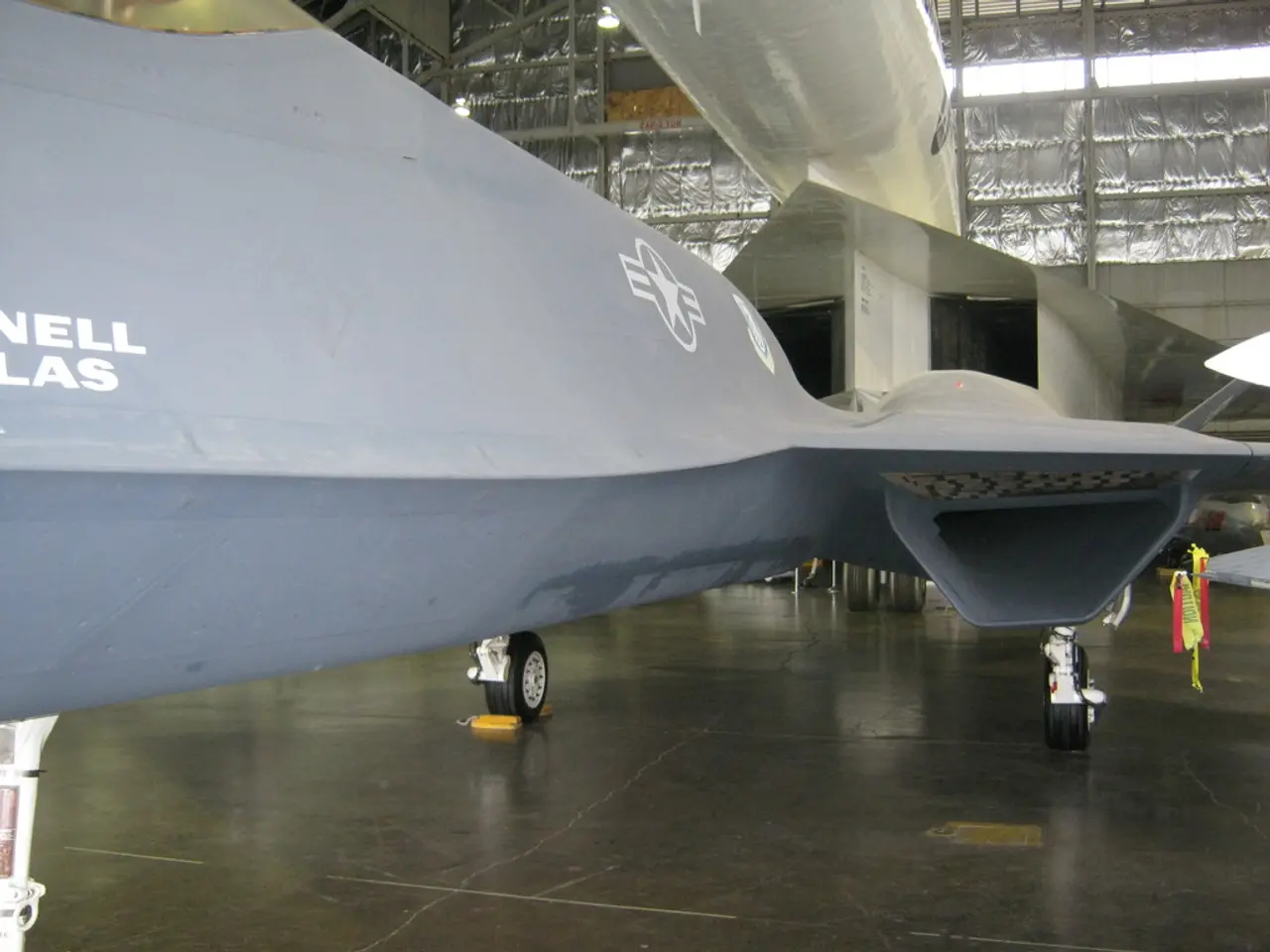Secure or Guarantee Safety:
Airbus Shapes the Future of Military Aviation
Airbus, a global leader in aerospace technology, is set to revolutionize military aircraft products, focusing on autonomous, networked, and versatile air combat and support capabilities. This strategic move aims to bolster European and allied defense readiness in the coming years.
One of Airbus' key initiatives is the development of autonomous drone wingmen, in collaboration with Kratos. The Valkyrie and the heavier Wingman platform, designed for the German Air Force, are intended to operate alongside manned fighters. These drones will enhance combat capabilities through electronic combat and force multiplication. Airbus aims to achieve readiness by 2029–2030, a timeframe that aligns with Europe's ambition to strengthen its self-defense capabilities [1].
Another significant development is the H160M Guépard attack helicopter, currently undergoing flight tests. This modern, multi-role platform is designed to replace multiple older helicopter types within the French Armed Forces. The H160M Guépard addresses joint operational needs across the Army, Navy, and Air and Space Force, focusing on versatile, effective rotary-wing capabilities in modern combat environments [2].
Airbus U.S. Space & Defense is also focusing on maturing autonomy in its MQ-72C Logistics Connector unmanned helicopter variant. This innovation aims to revolutionize Marine Corps aviation by providing autonomous aerial logistics support in austere and contested environments. This development reflects a broader trend toward autonomous, affordable, and flexible platforms supporting global military operations [3].
Moreover, Airbus is involved in advanced networked warfare concepts such as the Combat Cloud, a critical element of the Franco-German-Spanish Future Combat Air System (FCAS). The Combat Cloud aims to enable seamless information sharing and integrated combat operations in future fighter aircraft systems [4].
In summary, Airbus' future military aircraft products respond to the demand for autonomous systems integration, networked multi-platform operations, force multiplication through drones, modernization of rotary-wing capabilities, and the enhancement of European defense autonomy and interoperability. These developments are targeted at both immediate and longer-term strategic defense readiness, emphasizing autonomy, flexibility, and joint-force coordination.
Furthermore, Airbus' products are designed to be adaptable to future military operations and to meet the needs of tomorrow's military operations, ensuring they remain at the forefront of military aviation technology.
- Airbus' focus on autonomous drone wingmen, networked warfare concepts like the Combat Cloud, and the development of the H160M Guépard attack helicopter signify a strong emphasis on advanced technology and finance in the aerospace industry, particularly for military aviation.
- By integrating autonomous systems, networked multi-platform operations, and modern rotary-wing capabilities, Airbus is not only shaping the future of military aviation but also contributing significantly to the finance and technology sectors in the aerospace industry.








